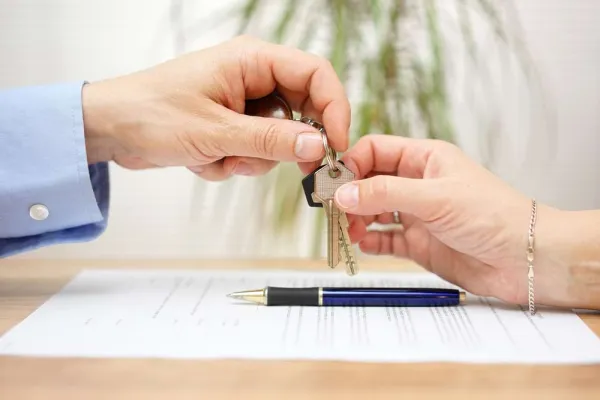Are you having trouble paying your energy bills? If so, you are far from alone.
Energy Bills are significantly higher than they were a few years ago, and with the cost-of-living crisis still affecting most households, they are slowly becoming less affordable. People have less disposable income than they once did and are having to find new ways to reduce their electricity and gas usage as a result.
As a potential solution to your energy bill struggles, it’s worth exploring the various financial support packages that the UK government is offering. These schemes can provide significant relief, easing the financial burden and offering a glimmer of hope. But exactly how much support can the government offer? Are you eligible for any of these schemes?
We have provided an overview of all the energy bill support in the blog below. Keep reading for everything you need to know.
Are Energy Bills going up?
Following Ofgem’s recent price cap announcement, energy prices in the UK have fallen by 12%. This means that from 1st April 2024, the average energy bill has gone down to £1,690 per year.
Despite this recent price reduction, energy bills continue to be significantly higher than they were several years ago, in 2020 and 2021.
Why are Energy Bills still so expensive?
According to most major bodies, the rise in energy prices is caused by ongoing tensions with Russia and reduced fuel supply from some major producers. As a result, prices are likely to increase when supply decreases.
In response to claims that UK energy firms are unnecessarily greedy, Ofgem has introduced the recent energy price cap.
Warm Home Discount Scheme
The ‘Warm Home Discount Scheme’ is a crucial energy support scheme that could directly address your energy bill concerns. It’s the most common and well-known scheme available, offering a one-off £ 150 discount on electricity bills for anyone eligible. This sum is automatically taken off your bill, providing immediate relief.
As things stand, the scheme is only available in England, Wales and Scotland.
You should be eligible in the first two countries if you either:
- get the Guarantee Credit element of Pension Credit or
- are on a low income and have high energy costs.
In Scotland, you will also need to meet your energy supplier’s criteria for the scheme. You should research this with your specific energy company.
Several other financial support initiatives (listed below) are slightly more ‘general’, meaning they are not explicitly designed for just energy bills but can still be used for this purpose.
Winter Fuel Payment
The ‘Winter Fuel Payment’ is paid out once per year and offers between £250 and £600 (depending on the circumstances) to people who were born before 25 September 1957. This initiative is, therefore, designed to support older members of society.
If you are eligible for the ‘Winter Fuel Payment ‘, you will typically receive it automatically. You don’t need to worry about applying for it. It will typically be preceded by a letter telling you how much you are entitled to.
Remember that in the most recent year, it only paid out in October (near the start of Winter), so you cannot access this money at any other time of the year.
Cold Weather Payments
During Winter, when the temperature is 0 degrees Celsius (or lower) for more than seven days, you can get £25 extra per week towards your energy bills. However, this scheme does not pay out very often because temperatures are rarely this low consistently.
You will only get Cold Weather Payments if you are getting any of the following:
- Pension Credit
- Income Support
- income-based Jobseeker’s Allowance (JSA)
- income-related Employment and Support Allowance (ESA)
- Universal Credit
- Support for Mortgage Interest
You do not need to apply for Cold Weather Payments – you should receive the money automatically once it becomes applicable.
The scheme only applies between 1st November and 31st March. Even if the temperature drops this low during October, you will not receive the payment.
Cost of Living Payments
If you are entitled to certain benefits or tax credits, you can receive extra payments to help with the cost of living. Although this support scheme is not explicitly geared towards energy bills, it will undoubtedly make meeting them easier.
You may be entitled to up to 3 Cost of Living Payments of £301, £300 and £299 if you get any of the following benefits or tax credits on specific dates:
- Income-based Jobseeker’s Allowance (JSA)
- Income-related Employment and Support Allowance (ESA)
- Income Support
- Pension Credit
- Universal Credit
- Child Tax Credit
- Working Tax Credit
The payment will be made separately from your benefit payments.
In addition, you may be entitled to a Disability Cost of Living Payment of £150 if you meet any of the benefits criteria. You should visit the UK Government website for more information on this subject.
The guidelines for Cost of Living payments in 2024/25 have not yet been released, so you should keep an eye out for the government releasing more details.
Household Support Fund
Some local councils in England have been known to offer something called the ‘Household Support Fund’.
The guidelines for this support in 2024/25 have not yet been released, so you should keep an eye out to confirm that this initiative will be offered over the next year. It is worth contacting your local council for more information.
Winter Heating Payment
The ‘Winter Heating Payment’ is a scheme currently offered in Scotland that helps people with low-income benefits who might have extra heating needs. It’s automatically paid once a year.
You should contact your local authority to determine eligibility or visit the government’s website. It usually pays out during the Winter months and is therefore not applicable throughout the other seasons of the year.
Should you install Eco-Friendly features to reduce your energy bills?
The answer to this question is, perhaps unsurprisingly, it depends.
Financial support is available to implement eco-friendly features such as insulation, solar panels, or LED lighting. Plenty of private investors will give you a loan to get these installed, which needs to be paid back.
Long term investment
In the long term, any installer of eco-friendly features should be able to provide accurate guidance on how much it will save you, for how long, and, therefore, when you will earn a return on your investment. If your installer is vague about this, you may want to speak to another professional who can be more specific in their guidance.
You are unlikely to recoup your investment shortly, so if you want to reduce your energy bills immediately, splashing out on new features is unlikely to yield an immediate return. However, if you are focused on your long-term profitability and the eventual selling price of your house, it may be more worthy of our attention.For more guidance on how energy efficiency impacts property value, click the link to read our blog. Sold.co.uk can also help you sell your house quickly – so get in touch today.
















